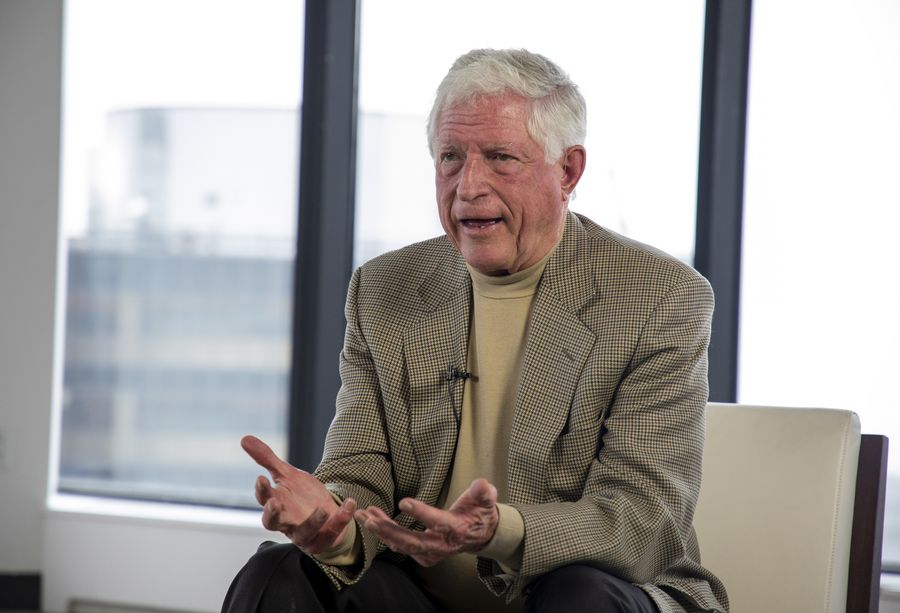
Peter Walker, senior partner emeritus at McKinsey & Company, a U.S. worldwide management consulting firm, receives interview with Xinhua in New York, the United Sates, Oct. 22, 2019. (Xinhua/Wang Ying)
"The United States and China are the two most powerful sources of engineering, scientific, mathematical talents. They together have contributed more to advancing the sciences than any other countries in the world," said a U.S. observer.
NEW YORK, Nov. 22 (Xinhua) -- Finding a way for the United States to understand and work together with China to create opportunities of "real constructive win-win" will benefit all, a U.S. observer said.
Having made more than 80 trips to China over the past 15 years, Peter Walker, senior partner emeritus at McKinsey & Company, a U.S. worldwide management consulting firm, gained an in-depth understanding about China by talking to Chinese executives, government officials as well as the public.
"What I discovered was that the people were happy, they were proud, they were energized. The government officials I met genuinely wanted to do the right thing for the people on a long-term basis," he said in a recent interview with Xinhua.

Aerial photo taken on Nov. 20, 2019 shows a view of a music town in Wuqiang County in Hengshui, north China's Hebei Province. (Xinhua/Li Xiaoguo)
Such experiences were quite opposite to what he read and watched in the mainstream media back in the United States.
The significant contrast between real China and the narrative China in the West inspired the China watcher to write a book himself to "get the story out there," which Walker regards as "an honest story" from his own experience and "doesn't come across as either pro-America or pro-China."
In his book "Powerful, Different, Equal: Overcoming the Misconceptions and Differences Between China and the U.S.," Walker tried to enlighten the U.S. readers that the development models of the United States and China "are completely grounded in their own unique history and culture" and there would be no question about why the systems "have evolved the way they have" if they would be able to understand that.

Aerial photo taken on May 28, 2018 shows a view at the Haizhu wetland in Guangzhou, capital of south China's Guangdong Province. (Xinhua)
He elaborated in his book Chinese mindsets of harmony, collectivism and pragmatism that derive from the Confucian theory and its own realities. "The bedrock that has impressed me most is Confucian values, which are over 2,500 years old and are still fundamental," he said.
"It's always harmony and balance and win-win ... a harmonious, let's-find-a-way-to-make-both-of-us-successful (mindset), which I think is genuinely what the Chinese are," he explained.
"The United States and China are the two most powerful sources of engineering, scientific, mathematical talents. They together have contributed more to advancing the sciences than any other countries in the world," said Walker.
The United States should find a path to cooperate with China, which could bring more benefits to the two countries and peoples, he said.
"I'm optimistic that will ultimately happen," he added. ■



